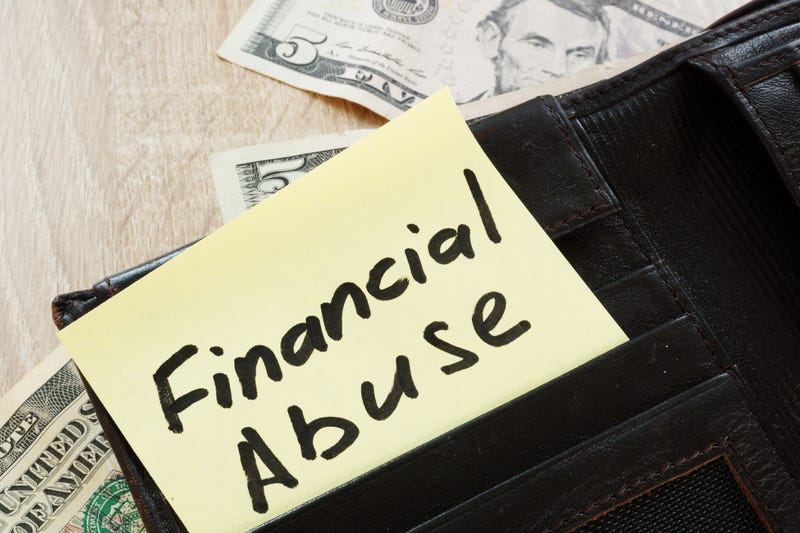
October is Domestic Violence Awareness Month, and while physical and emotional abuse is often the focus, one aspect that often goes unnoticed is financial abuse.
This form of abuse, which involves the perpetrator using money as a weapon to control the victim, is more prevalent than we realize.
Beverly Harzog, a credit card expert at US News and World Report, says a study revealed that 99% of domestic violence survivors also experienced financial abuse in their relationships.
Despite its common occurrence, financial abuse remains largely unspoken. Harzog explains, "The perpetrator will use money and wield it as a weapon to control the victim, which can be very demoralizing."
Through a survey of respondents currently in relationships, Harzog discovered alarming signs of financial abuse, including the fact that nearly 22% of respondents had experienced financial abuse in a past relationship.
"The offender may take control of the victim's financial resources, such as their job and income. They might cash the victim's checks without permission or intentionally damage their credit score," Harzog says. This manipulation is aimed at restricting the victim's access to money and reinforcing the perpetrator's control.
Financial abuse can extend beyond romantic relationships. Harzog emphasizes, "Elder abuse is a significant problem in this country. It is easy for a close relative, such as a son or daughter, who handles an elderly person's finances, to take advantage of their vulnerability."
Individuals trapped in financial abuse often find it difficult to leave such relationships due to various reasons. Harzog shares that nearly half (47%) of the respondents in the survey cited their children as the main hindrance to leaving.
So how do you plan to leave a financially abusive situation?
Harzog suggests starting by researching available options discreetly and clearing browsing history to prevent tracking by abusers. Checking credit reports is essential to detect any accounts opened fraudulently by the abuser.
Although leaving an abusive relationship presents challenges, help is available through the National Domestic Violence Hotline at 800-799-7233.
Other resources include domesticshelters.org for finding lodging and the Office on Women's Health for guidance on escaping abusive relationships.
LISTEN on the Audacy App
Tell your Smart Speaker to "PLAY 1080 KRLD"
Sign Up to receive our KRLD Insider Newsletter for more news
Follow us on Facebook | Twitter | Instagram | YouTube
